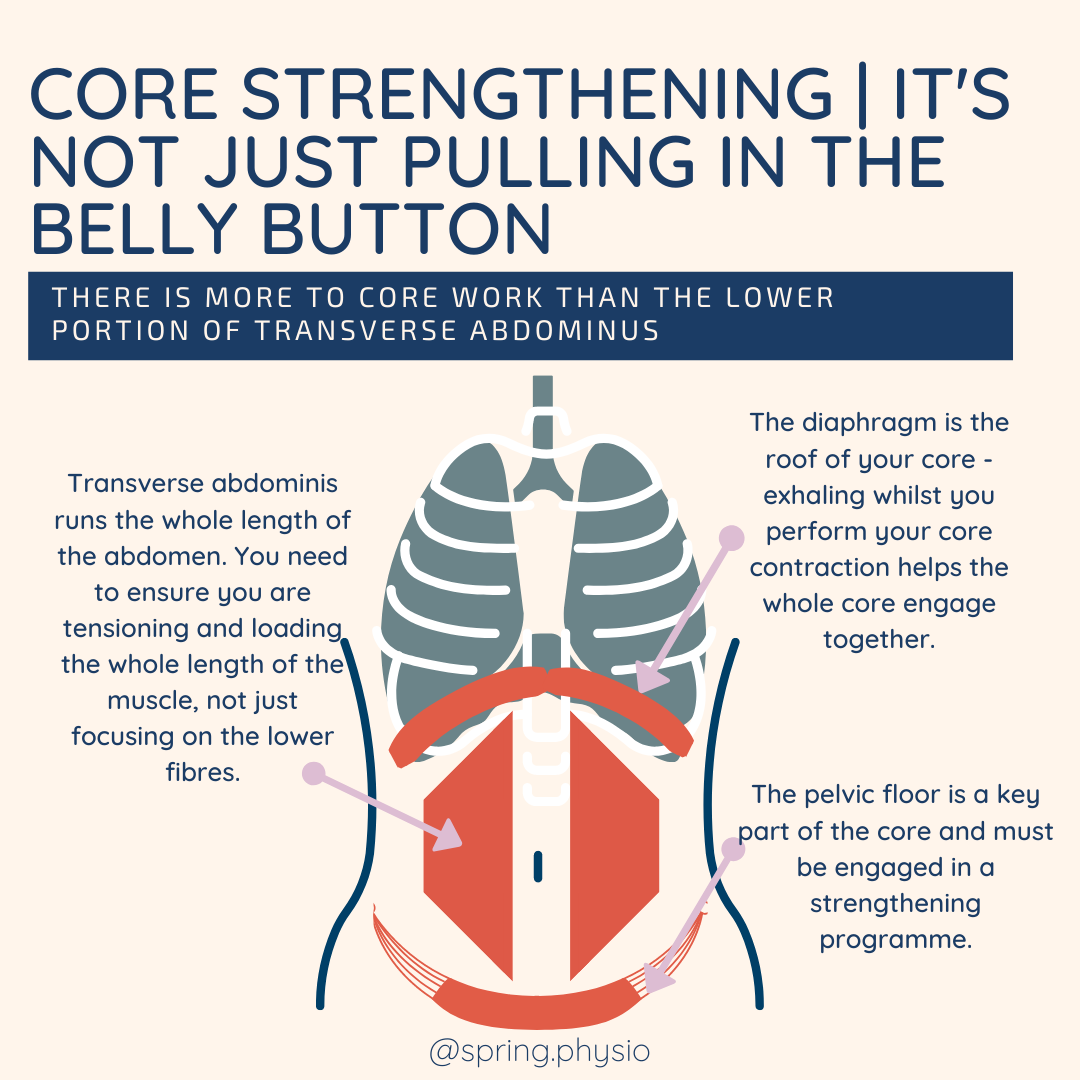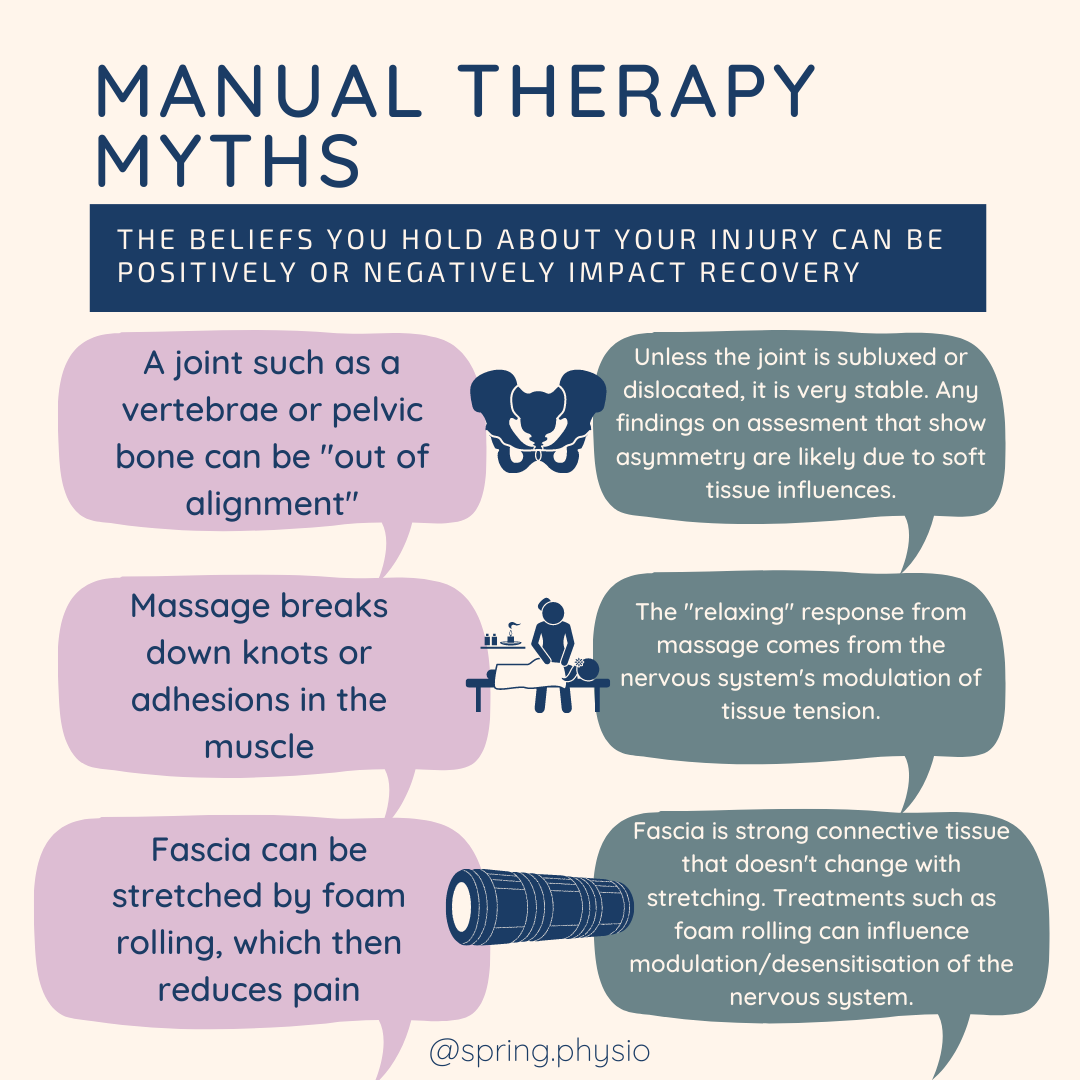|
Cueing is so important. It can be the difference between great engagement and recovery of core related issues and just engaging other local, overworking muscles.
I have lost count of the number of exercise classes where I've vaguely been told "Pull your belly button to spine". When? All the time? When I'm inhaling? When I'm exhaling? Fortunately as a physio I know what I should do, but many other people in the class must be totally confused! Key aspects for core rehab are: Use your exhale to engage the diaphragm and reduce intra-abdominal pressure. Make sure a pelvic floor contraction is included. Make it bespoke! People do not respond the same way to an exercise. Check their engagement - how well are they achieving tension? Is tension generated along the whole of the TVA, or is one area better than another? Can you change the cue to improve the engagement? I'm constantly playing around with visualisation and cueing to see what works best. We're not robots, everyone is different, but that's what keeps the job interesting!
1 Comment
You might read this post and think - why does it matter? As long as a treatment makes you feel better, it's not important how it works, right?
Well that depends. Let's say you have pelvic pain and have been told that one of your pelvic joints is out of alignment. That belief means that every time you have a relapse, you believe you must see a therapist to have it "put back in", otherwise it won't get better. You might be scared to do gentle exercises or your every day tasks, in case you make it come out further! It may make you scared to move, fearing that you have an unstable pelvis, imagining something similar to a fracture. This fear and belief does NOT help your recovery. Your brain will be on red alert protection mode, provoking pain responses to guard against anything that might worsen the instability. You see your therapist, they "put it back in" and you feel better. Until next time. Because if in the back of your mind you still have this deep seated fear that there is something fundamentally wrong with your skeletal system, any twinge is likely to set your brain off to guard that part of your body. Guarding = pain. So yes, how you understand your diagnosis, and the impact of your treatment really DOES matter. Injuries should not require ongoing maintenance treatments. The goal of physiotherapy is to get you better and help you feel confident in every day life. SHOULD you have a relapse, we will give you the tools and education to ensure you are confident to self treat and manage the flare up. |
AuthorClaire is a women's health and sports Physiotherapist. She is the owner of Spring Physio and is based in East Sussex. Archives
April 2024
Categories
All
|



 RSS Feed
RSS Feed